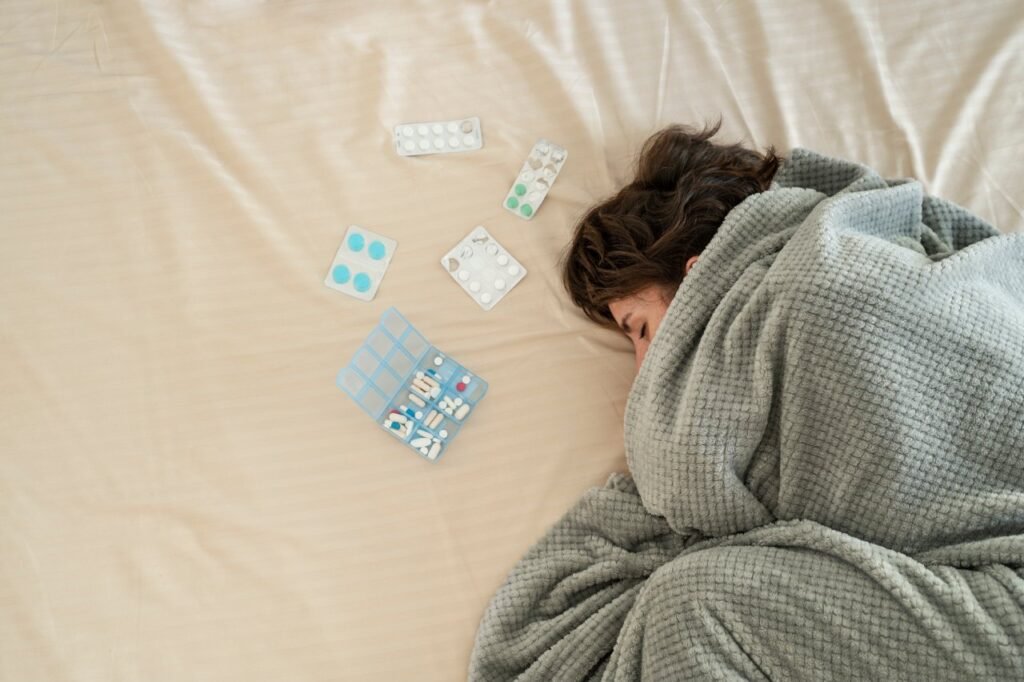If you’ve been relying on Zopiclone to manage insomnia but notice it’s not working as well as it used to, you’re not alone. Many people experience a reduced effect of Zopiclone over time, especially with long-term use. While Zopiclone remains one of the most effective sleeping pills in the UK, it’s important to understand why it may stop working and what you can do to regain restful sleep.
In this guide, we’ll explore the reasons behind Zopiclone tolerance, what steps you can take if it no longer helps you sleep, and alternative ways to restore your sleep quality safely.
Understanding How Zopiclone Works
Zopiclone is a prescription-only sleep medication belonging to a class of drugs known as hypnotics. It works by calming the brain and helping you fall asleep faster and stay asleep longer. Most people use Zopiclone 3.75 mg, 7.5 mg, or similar doses for short-term treatment of insomnia.
However, like other sleep medications, Zopiclone can lose its effectiveness when used continuously for several weeks or months, as your body gradually builds up a tolerance to it.
Why Zopiclone May Stop Working
If Zopiclone no longer helps you sleep, there could be several reasons:
- Tolerance Development
Over time, your body may become less responsive to Zopiclone, requiring a higher dose to achieve the same effect — something that should only be done under medical supervision. - Psychological Dependence
Some users find that they can’t fall asleep without the pill, even when their body no longer needs it. This mental dependency can make insomnia worse once the medication is stopped. - Underlying Sleep Issues
Conditions like anxiety, depression, stress, or poor sleep hygiene can cause insomnia to return even when using Zopiclone. - Improper Use
Taking Zopiclone with alcohol, caffeine, or other medications can reduce its effectiveness or cause unwanted side effects.
What You Can Do If Zopiclone No Longer Works
If Zopiclone isn’t helping you sleep as it once did, it’s important not to increase your dose on your own. Instead, try the following safe and effective steps:
- Talk to Your Doctor
Your doctor can help determine whether you’ve developed a tolerance or dependency and guide you on the best tapering plan or alternative medications. They might recommend switching to another sleep aid or using a lower dose for a short period before stopping completely.
- Gradually Reduce Your Dose
Never stop Zopiclone suddenly. Gradual tapering helps your body adjust and reduces withdrawal symptoms such as anxiety, restlessness, or rebound insomnia.
- Try Cognitive Behavioural Therapy for Insomnia (CBT-I)
CBT-I is a proven, non-medication treatment that helps change negative thought patterns and behaviours around sleep. It can be just as effective as Zopiclone for long-term results.
- Improve Your Sleep Hygiene
Simple lifestyle changes can greatly improve sleep quality:
- Stick to a consistent sleep schedule
- Avoid screens and bright lights before bed
- Keep your bedroom cool, quiet, and dark
- Avoid caffeine and alcohol late in the day
- Explore Natural Sleep Aids
Some people find relief from melatonin supplements, magnesium, or herbal sleep aids such as valerian root or chamomile tea. These options may support better sleep without causing dependency.
Safer Alternatives to Zopiclone
If your body no longer responds well to Zopiclone, your doctor might suggest other prescription sleep medications such as Zolpidem (Ambien), Temazepam, or Eszopiclone. Each option works differently, so what doesn’t work for one person may work for another.
You can also explore a range of Zopiclone alternatives in the UK available at trusted online pharmacies like Zopiclone UK Shop, where you’ll find quality sleep medications delivered discreetly to your door.
When to Seek Medical Advice
If you’re experiencing:
- Persistent insomnia for more than two weeks
- Worsening anxiety or depression
- Dependence on sleeping pills to function
- Withdrawal symptoms when skipping a dose
…it’s essential to consult a healthcare professional. They can review your medication use, adjust your treatment plan, and help you transition to healthier long-term sleep habits.
Final Thoughts
When Zopiclone no longer helps you sleep, it doesn’t mean you’re out of options. With proper guidance, lifestyle adjustments, and the right alternatives, you can restore your natural sleep rhythm safely. Avoid self-medicating or increasing your dose without medical advice — instead, take proactive steps toward healthy, sustainable sleep.
For more information on Zopiclone, dosage options, and safe online purchasing, visit Zopiclone UK Shop — your trusted source for authentic sleeping tablets in the UK.







